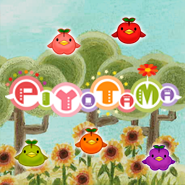
Tetris Attack, also known as Panel de Pon, is a 1995 puzzle video game developed by Intelligent Systems and published by Nintendo for the Super Nintendo Entertainment System. A Game Boy version was released a year later. In the game, the player must arrange matching colored blocks in vertical or horizontal rows to clear them. The blocks steadily rise towards the top of the playfield, with new blocks being added at the bottom. Several gameplay modes are present, including a time attack and multiplayer mode.

Wario's Woods is a 1994 falling tile puzzle video game published by Nintendo for both the Nintendo Entertainment System and its successor the Super Nintendo Entertainment System. Based on the company's Mario series, players control Toad in his mission to defeat Wario, who has taken control of the Peaceful Woods. Gameplay revolves around clearing each level by using bombs to destroy groups of enemies. There is also a multiplayer mode that allows for two players to compete against each other.

Samba de Amigo is a rhythm game developed by Sonic Team and published by Sega. The game was released in arcades in December 1999, and for the Dreamcast video game console in 2000. A port for the Wii was also developed by Gearbox Software and Escalation Studios and released in 2008. In Samba de Amigo, the player uses controllers shaped like maracas with the goal of matching a series of patterns displayed on-screen. The music in Samba de Amigo is made of primarily popular Latin music songs rather than common or traditional samba. The game also features non-Latin pop songs.
The DualShock is a line of gamepads with vibration-feedback and analog controls developed by Sony Interactive Entertainment for the PlayStation family of systems. Introduced in November 1997, it was initially marketed as a secondary peripheral for the original PlayStation, with updated versions of the PlayStation console including the controller, Sony subsequently phased out the controller that was originally included with the console, as well as the Sony Dual Analog Controller. The DualShock is the best-selling gamepad of all time in terms of units sold, excluding bundled controllers.

Zoo Keeper is a tile-matching puzzle video game developed for the Web by Robot Communications and later ported to the Nintendo DS by Japanese video game publisher Success. Zoo Keeper was released for arcades in 2004. The game was then brought to American and European shores by Ignition Entertainment, and has since been released for iOS and Android devices under the title Zookeeper DX Touch Edition by Kiteretsu.

Resistance: Fall of Man is a 2006 science-fiction first-person shooter video game for the PlayStation 3. It was developed by Insomniac Games and published by Sony Computer Entertainment. The game is set in an alternate history 1951, and follows Sergeant Nathan Hale as he and the human resistance forces attempt to drive a mysterious alien-like invasion out of the United Kingdom. The story continues in Resistance 2.
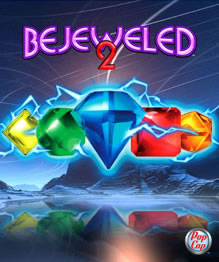
Bejeweled 2, also released as Bejeweled 2 Deluxe, is a tile-matching puzzle video game developed by PopCap Games, and the sequel to Bejeweled. It includes extra game modes and features. Bejeweled 2 Deluxe was released for the Xbox 360 as a downloadable Xbox Live Arcade game on November 22, 2005. In 2007, the game was released on the PlayStation 2 alongside another PopCap game, AstroPop as a two-game compilation pack as PopCap Hits! Volume 1. PopCap also released a version for iOS in 2008. Bejeweled 2 was also released for PlayStation 3 on the PlayStation Network on January 29, 2009, on the Wii via WiiWare on June 14, 2010, and on PlayStation Portable on June 29, 2010, and for Android. As with the original Bejeweled, Bejeweled 2 is based on the Shariki game mechanic.
Dynomite! is a PC game developed by Raptisoft Games and published by PopCap Games. Its gameplay is largely similar to that of the Puzzle Bobble series, but it has several unique differences.
Various accessories for the PlayStation 3 video game console have been produced by Sony. These include controllers, audio and video input devices like microphones, video cameras, and cables for better sound and picture quality.

Sixaxis is a wireless gamepad produced by Sony for their PlayStation 3 video game console. It was introduced alongside the PlayStation 3 in 2006 and remained the console's official controller until 2008. The Sixaxis was succeeded by the DualShock 3, an updated version of the controller that, like the DualShock and DualShock 2 controllers, incorporates haptic technology – also known as force feedback. A Sixaxis controller can also be used with Sony's PSP Go via Bluetooth after registering the controller on a PlayStation 3 console.

Planet Puzzle League, known as Puzzle League DS in Europe, and as Panel de Pon DS in Japan, is a video game for the Nintendo DS handheld video game console in the Puzzle League/Panel de Pon visual matching puzzle game series. In North America, Planet Puzzle League is part of the Touch! Generations brand; in Japan, Panel de Pon DS is marketed in the general Touch! brand. The publisher for the game is Nintendo, and the developer is Nintendo second-party developer Intelligent Systems, creator of the original Panel de Pon and its cult classic English-language adaptation Tetris Attack. The game was released in Japan on April 26, 2007 in North America on June 4, 2007, and in Europe on June 29, 2007.

Picross DS (ピクロスDS) is a puzzle video game developed by Jupiter and published by Nintendo for the Nintendo DS handheld video game console. It is the second Picross game to be released by Nintendo in Europe and North America after Mario's Picross suffered a commercial failure in regions outside Japan, where many Picross games have been released for several Nintendo consoles. Like other Picross games, it presents the player with a series of nonogram logic puzzles to solve. It was first released in Japan, and was later released in North America, Europe and Australia.
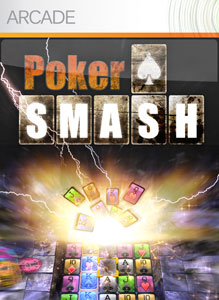
Poker Smash is a puzzle game developed by American independent software developer Void Star Creations for the Xbox 360's Xbox Live Arcade service and iPhone OS. The title was officially announced during Microsoft's E3 2007 press conference and was released on February 6, 2008. A Microsoft Windows release was announced for 2013, but never happened.
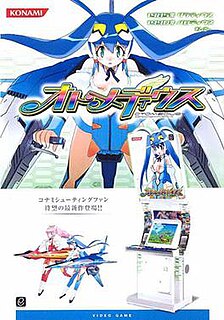
Otomedius is a side scrolling shooter by Konami which featured personification of space fighters from various Konami games. The main characters are mostly females, designed by Mine Yoshizaki, with a set of equipment resembling space fighters from side-scroller games by the same company like Gradius, Salamander, Thunder Cross, TwinBee or Xexex. The name is a pun, being a portmanteau of the terms "otome" and "Gradius". The music was composed by Hiroki Koga.

Bejeweled 3 is a tile-matching puzzle video game developed and published by PopCap Games. It is the fifth game of the Bejeweled series. The game was released as a download for Windows and Mac on December 7, 2010, later being ported to the PlayStation 3, Xbox 360, and Xbox One through the Backward Compatibility Program, Nintendo DS, iOS, Android, Java ME, and Windows Phone. It features four new game modes, as well as the four standard ones from Bejeweled and Bejeweled 2.
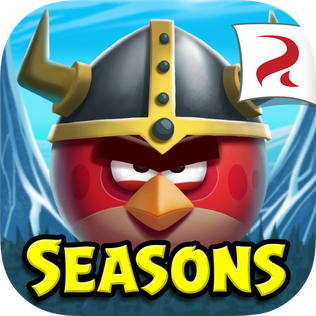
Angry Birds Seasons was the second puzzle video game in the Angry Birds series, developed by Rovio Mobile. Based on Angry Birds, Angry Birds Seasons was released for devices using Apple's iOS in October 2010 and then it was released on other platforms starting in December 2010. There have been no new releases since the release of Ragnahog on December 1, 2016 and it was removed from App Store and Google Play in December 2018.
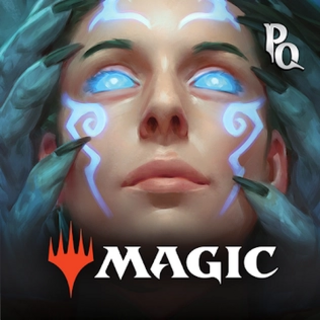
Magic: The Gathering – Puzzle Quest is a puzzle video game that combines the gem-matching concept in Puzzle Quest and its sequels, with the collectible card game aspects of Magic: The Gathering. It was released for mobile systems in December 2015.

Monster Hunter Stories is a role-playing video game developed by Capcom and Marvelous. It is a spin-off title set within the Monster Hunter series. The game was released in Japan for the Nintendo 3DS handheld game console on October 8, 2016, and was released in North America, Europe and Australia in September 2017. A mobile version of the game was released on December 4, 2017 in Japan and September 25, 2018 worldwide. Unlike any of the previous titles in the Monster Hunter series, Monster Hunter Stories lets players take on the role of a Rider instead of a Hunter, and are able to battle in a role-playing turn-based system. Major additions in this installment include hatching eggs and befriending monsters, battling alongside them, executing special Bond attack moves, and customizing monsters' abilities and appearance. The game features support for Amiibo figurines, with a first set launching alongside the game, and a second set launching two months later. A similarly named anime series is a loose adaptation of this game.
Lumines is a puzzle video game series developed by Q entertainment. The core objective of the games is to survive by rotating and aligning 2×2 blocks varying between two colors to form 2×2 squares of a single color which will be erased when the Time Line passes over them. The game is lost when the blocks reach the top of the playing field.

Lumines: Puzzle & Music is a puzzle game for iOS and Android, developed and published by Mobcast with Resonair as co-developer. It was the second smartphone game in the Lumines series after Lumines: Touch Fusion. The objective is to rotate and drop 2×2 blocks to create squares of the same color as a vertical line sweeps across the board to erase completed squares and award points to the player. It was released in Japan, Australia, and New Zealand on July 19, 2016, and later worldwide on September 1, 2016.
